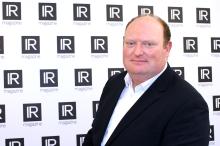Covid-19 has raised the bar on the importance among investors of the social or S factor in ESG, almost to the same level as environmental factors, IROs were warned at the latest IR Magazine Think Tank – Europe.
Corporate culture has been of growing interest to investors over the past five years, but how best to communicate that culture to investors? That was one of several real-world issues thrashed out by senior IR professionals in panels and roundtable discussions during the popular in-person event in London last week.
 Attendees heard one way to quantify corporate culture is via a company’s executive incentives and compensation policies but it also extends to recruitment approaches and codes of conduct. Health and safety measures and anti-money-laundering and sustainability policies are also of interest to investors when they evaluate a company.
Attendees heard one way to quantify corporate culture is via a company’s executive incentives and compensation policies but it also extends to recruitment approaches and codes of conduct. Health and safety measures and anti-money-laundering and sustainability policies are also of interest to investors when they evaluate a company.
A whistleblowing policy is important to include and often a requirement but best practice demands that issues of accountability raised are referred to an external party, not the company’s own C-suite. As one panelist memorably described the concept: ‘Corporate culture is defined by the way we do things around here when no one is watching.’
‘Loud, clear and constant messaging’
To successfully navigate uncertain geopolitical and economic environments, stay close to your management team and what is happening on the shop floor to be able to respond with agility to questions from investors and analysts.
 ‘Be loud, clear and constant in messaging,’ IROs were told. ‘Consider how to do things differently to enhance understanding in the market and challenge the norms. Anticipate messaging and have a Plan B for worst-case scenarios. The world as we knew it in February 2020 is not coming back.’
‘Be loud, clear and constant in messaging,’ IROs were told. ‘Consider how to do things differently to enhance understanding in the market and challenge the norms. Anticipate messaging and have a Plan B for worst-case scenarios. The world as we knew it in February 2020 is not coming back.’
IROs heard there are about 50,000 ESG KPIs companies can report against but that investors don’t want more information – they want better quality information. Materiality processes are key words for businesses. IROs were urged to prepare for incoming legislation for compliance, benchmark against their sector peers and take social and generational trends into account, ‘as it’s all about people – customers, suppliers and employees.’
 Communicating ESG values varies between stakeholder groups – investors, potential investors and analysts, attendees heard. They all have their own questions and IROs have to tailor their messages accordingly. ‘It’s easier to drive your ESG strategy with your employees on board,’ one panelist said.
Communicating ESG values varies between stakeholder groups – investors, potential investors and analysts, attendees heard. They all have their own questions and IROs have to tailor their messages accordingly. ‘It’s easier to drive your ESG strategy with your employees on board,’ one panelist said.
Investors are focused on greenwashing as they don’t want to associate themselves with a company accused of the practice, IROs were warned. Investors are calling for forward-looking ESG metrics to measure the journey of transition.
 Questions to ask, said a panelist, include: where are you with your assets and net-zero emissions and how are you proving it? How far do you have to go? ‘Investors want to see ESG integration not just for the revenue but also to manage risks,’ the panelist continued.
Questions to ask, said a panelist, include: where are you with your assets and net-zero emissions and how are you proving it? How far do you have to go? ‘Investors want to see ESG integration not just for the revenue but also to manage risks,’ the panelist continued.
IR Magazine returns to Palo Alto, California for its next Think Tank – West Coast II on September 16. Requests for invitations to attend are now open.











